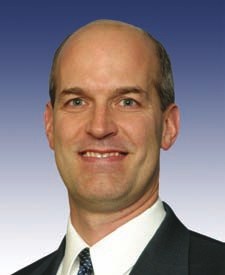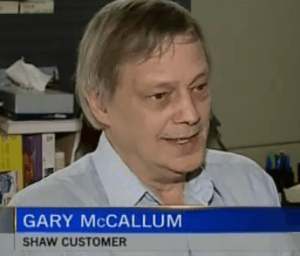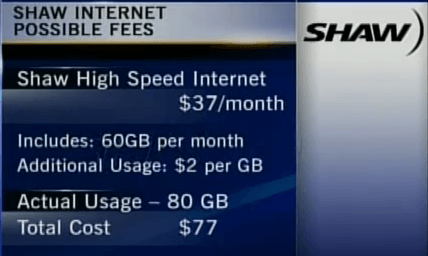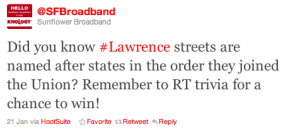Outrage over enormous price increases for Frontier’s fiber optic television service in Indiana are being met with little more than a shrug of the shoulders by one company executive, who seemed to dismiss as an afterthought the state-of-the-art FiOS network it acquired from Verizon.
Frontier Communications’ president of its Midwest division, Don Banowetz, has been making the rounds with Fort Wayne-area reporters over news the phone company intends to boost prices for its FiOS TV service by $30 a month for most customers.
But Banowetz has done little to defend the price increases or the fiber network the company acquired with its purchase of landlines from Verizon.
“Look, we bought the whole company, right? All the assets. The FiOS part was part of that, so it was part of the deal,” said Banowetz. “We couldn’t ride the previous arrangement. So in essence, it was what it was.”
WANE-TV reporter Aishah Hasnie seemed stunned with Banowetz’s response, finally asking what customers should do if they can’t afford the rate increases.
“Get DirecTV,” came the reply.
Starting February 18th, customers who subscribe to a FiOS TV basic package will see their rates go by up $12 per month. Customers who subscribe to other FiOS TV packages will see a $30 increase. The increase does not affect customers under a price protection plan.
That kind of price increase would normally provoke blanched faces in a corporate boardroom over fears of a mass exodus of customers. But not Frontier.
“The FiOS TV part of our business is actually a very small part of our business. It’s about three percent of our revenues,” said Banowetz.
But Frontier’s satellite package, pitched as an alternative, brings plenty of tricks, traps and other hidden fees inside the box. In addition to signing a two-year service commitment with DirecTV, customers also have to sign a three-year “price protection agreement” with the phone company, which is another way of saying “contract.” The total price adds up:
 Customers opting for Frontier’s “free TV” promotion will face a three-year contract term with a $400 early cancellation fee;
Customers opting for Frontier’s “free TV” promotion will face a three-year contract term with a $400 early cancellation fee;- Frontier’s satellite TV promotion has a three-year contract term with a $300 early cancellation fee;
- “Care and handling” fees amounting to $69.99 apply to the “free TV” offer;
- A $34.99 Frontier “video setup fee” applies to customers getting satellite service from the phone company;
- DirecTV requires customers to pass a credit check and sign a contract with a 24 month commitment;
- If you change any aspect of your programming package, you may forfeit the “free service” offered as part of the promotion.
In northwest Washington state, Frontier’s rate increases are alienating the company with one member of the state’s congressional delegation.
U.S. Representative Rick Larsen (D-Wash.) sent a letter to Frontier complaining about the huge rate hikes, telling the company it needs to find better alternatives for many of his constituents who cannot install a satellite dish.
“Folks in Northwest Washington are concerned about the future of cable service offered through Frontier Communications, and rightly so,” said Rep. Larsen. “I am calling on Frontier to offer consumers better and more affordable options for cable service in the region.”
Rep. Larsen’s letter to Frontier Communications:
Dear Mr. Mason:
I am writing to express concerns that I share with many of my constituents in Northwest Washington about Frontier’s plans for cable service in our region. The Everett Herald recently published an article, “Switch to a Dish or pay more, Frontier tells FIOS customers,” that highlights some of the problems that people in Northwest Washington have with Frontier’s announcement that it will alter the existing framework of its fiber-optic television service. Specifically, Frontier’s decision to offer its customers a choice between continuing with their current FIOS television service—with a rate increase of 46 percent or switching their cable television service to the satellite provider DirecTV.
I am concerned with Frontier’s decision to substantially raise its cable television rates for its existing customers in the Pacific Northwest. Last September, Frontier Communications Chief Executive Maggie Wilderotter was quoted in The Oregonian newspaper stating that Frontier would distinguish itself from larger cable companies by holding down prices for its customers. I find it troubling that less than six months later Frontier is dramatically raising its cable television rates.
Additionally, it is problematic that Frontier has not offered an adequate alternative to those customers who live in apartment complexes where the installation of satellite dishes is prohibited and therefore cannot take advantage of the option to switch their cable service to DirecTV. — Rick Larsen, United States Representative, Washington State, 2nd District
Stop the Cap! reader John says he has sent a letter to CEO Maggie Wilderotter protesting the rate hikes and imploring the company to find a programming co-op to join. Smaller providers need not pay “rack prices” for cable programming. Municipal providers, family owned companies, and small independent cable operators have enjoyed substantial programming discounts through group buying power. Frontier apparently is trying to negotiate for video programming on its own, a fatal mistake that has brought on this month’s rate hike.
If you want to help educate Frontier about how to run their business properly, here is their contact information:
Frontier Communications Corporation
3 High Ridge Park
Stamford, CT 06905-1390
Phone: 203-614-5600
Fax: 203-614-4602
[email protected]
When writing or calling, don’t forget to tell them to abandon their Internet Overcharging schemes — no usage caps or limits on Frontier broadband, or you will take your business somewhere else.
[flv width=”480″ height=”380″]http://www.phillipdampier.com/video/WANE Fort Wayne Frontier Frustration 1-24-11.flv[/flv]
WANE-TV in Fort Wayne delves into Frontier Frustration as angry customers react to news of enormous rate increases. (2 minutes)


 Subscribe
Subscribe












